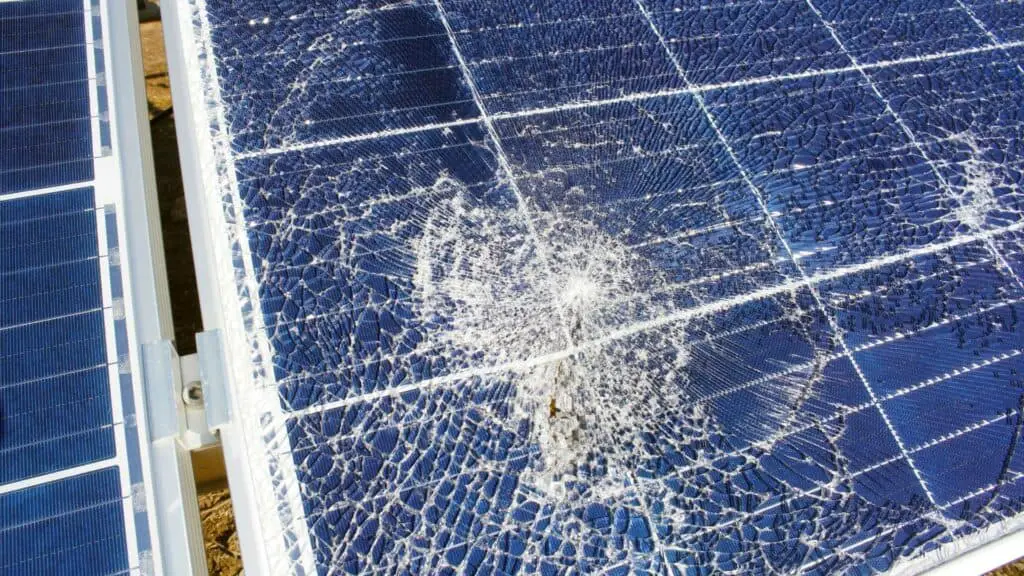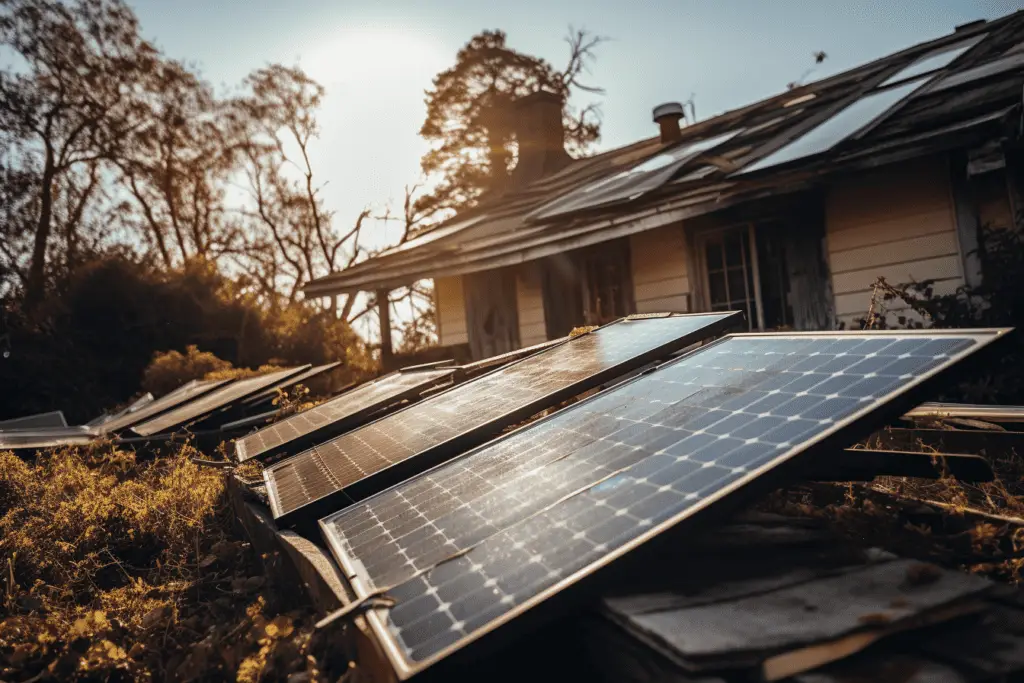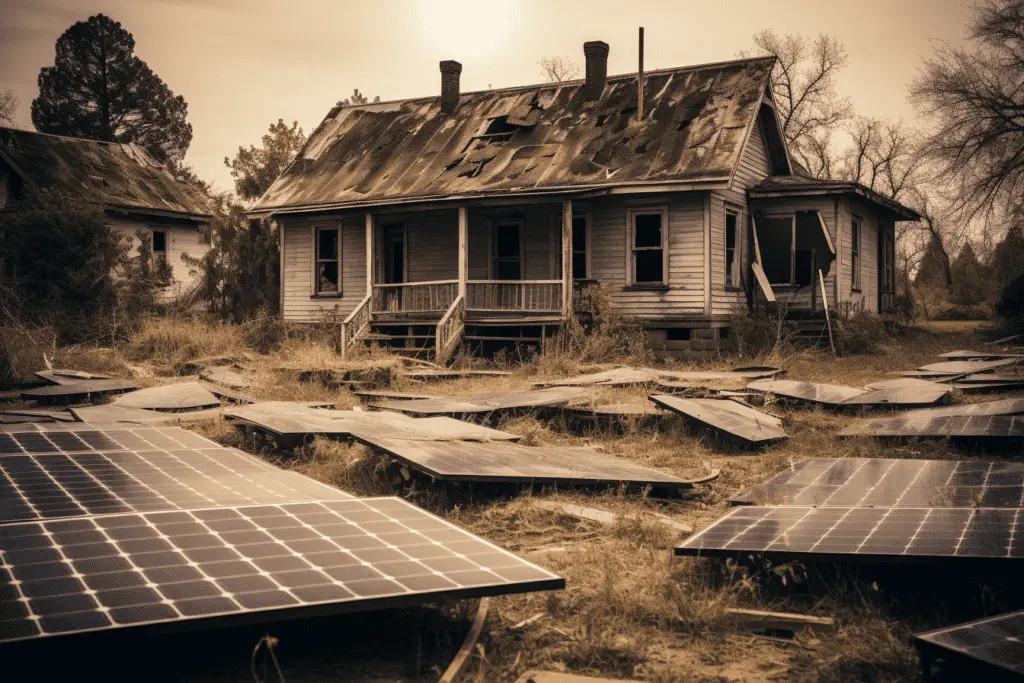
Curious to learn how long do solar panels last on a house? In this article, we will explore the average lifespan of solar panels, factors that affect their longevity, and how you can extend their lifespan.
On average, solar panels on a house will last 25 years depending on maintenance, climate, and brand quality.
We will also discuss the different types of solar panels and the benefits of installing them on your house, including lower electricity bills and increased property value. Stay tuned to learn more about solar panels and how they can benefit you in the long run.
Key Takeaways:
- Solar panels on a house can last for an average of 25 years, but factors like maintenance, installation, and quality can affect their lifespan.
- To extend the lifespan of solar panels, regular maintenance, proper installation, and choosing high-quality panels are important.
- Benefits of installing solar panels on a house include lower electricity bills, environmental benefits, and increased property value.
Table of Contents
What Are The Factors That Affect The Lifespan Of Solar Panels On A House?
The lifespan of solar panels on a house is influenced by various factors that can impact their performance and longevity.
One key factor affecting solar panel lifespan is the rate of degradation, which refers to the degradation rate or the gradual decline in performance over time.
Solar panels can lose efficiency as they age due to factors like exposure to UV radiation, temperature fluctuations, and environmental wear and tear. Another crucial consideration is the efficiency levels of the panels themselves; higher efficiency panels can often maintain their performance for longer periods.
When installing solar panels, it’s essential to take into account the local climate conditions, as different climates can have varying effects on panel durability and efficiency.
For instance, extreme heat or cold during extreme weather can impact the materials and components of the panels, potentially shortening their lifespan. Regular maintenance and proper installation techniques play a vital role in maximizing the longevity of solar panels and ensuring optimal performance over time.
how long do solar panels last on a roof?
The duration for which solar panels last on a roof varies depending on factors such as the quality of the panels, maintenance, and environmental conditions.
On average, solar panels can be expected to have a lifespan of about 25-30 years. This is subject to change based on various elements affecting solar panel degradation rate and their longevity. Degradation rates play a significant role in determining how long solar panels remain efficient.
Over time, solar panels degrade due to exposure to sunlight and weather conditions, which can impact their energy production efficiency.
Advancements in solar technology have been instrumental in prolonging the lifespan of solar panels. Innovations in materials and manufacturing processes have helped increase durability and resistance to wear and tear in solar industry, contributing to the longevity of solar panels on roofs.
How Can You Extend The Lifespan Of Solar Panels?
Extending the lifespan of solar panels can be achieved through regular maintenance, replacing outdated panels with high-quality alternatives, and ensuring optimal system performance.
Regular maintenance is crucial for keeping solar panels functioning efficiently over time. This includes cleaning debris, checking for any damage, and ensuring all connections are secure.
Upgrading to high-quality panels not only enhances overall performance but also increases durability. Look for panels with advanced technologies and warranties that guarantee longevity.
Monitoring the system’s performance is essential to identifying any issues early on. Utilize monitoring software to track energy production and detect any anomalies.
Regular Maintenance
Regular maintenance plays a crucial role in preserving the efficiency and longevity of solar panels, ensuring optimal energy production and long-term cost savings.
One of the key maintenance tasks for most solar panels, is regular cleaning to remove dirt, dust, and debris that can obstruct sunlight absorption. This should be done at least a few times a year to maintain peak performance.
Proper Installation
Proper solar installation by a reputable solar installer is essential for maximizing the lifespan and performance of solar panels, ensuring optimal energy production and system efficiency.
Regarding investing in solar energy, the expertise of an experienced installer or solar provider cannot be overstated. Professional installation services play a vital role in not only setting up the panels but also ensuring they are correctly aligned and integrated with your existing electrical systems.
Choosing High-Quality Panels
Selecting high-quality panels from reliable solar manufacturers is paramount in enhancing the durability, efficiency, and overall performance of a solar panel system.
High-quality solar panels are crucial for ensuring a long-lasting and efficient solar energy system. Panels from reputable solar panel manufacturers are designed with superior materials and advanced technology, resulting in increased energy production over the panel’s lifespan.

What Are The Benefits Of Installing Solar Panels On A House?
Installing solar panels on a house offers multiple benefits, including significant energy savings, environmental advantages, and the potential for increased property value.
By leveraging the capabilities of the sun, homeowners can greatly reduce their electricity bills, freeing up more funds for other expenses or savings. Utilizing solar energy is a sustainable choice that helps to minimize carbon footprint and promote a greener environment.
One of the often overlooked advantages of residential solar panel installations is how they can enhance the overall value of a property. Research indicates that homes with solar panels tend to appraise higher and sell faster than those without, making it a wise investment for the long run.
Lower Electricity Bills
One of the primary benefits of installing solar panels is the reduction in energy bills, leading to long-term cost savings and lower overall energy costs for homeowners.
By leveraging the capabilities of the sun, solar panels generate clean electricity that can be used to power homes, reducing the dependency on traditional energy sources. As a result, homeowners can see a significant decrease in their monthly electricity bills, providing substantial financial relief over time.
With advancements in technology and increasing government incentives, the initial investment in solar panels is becoming more affordable, making it a lucrative option for many households.
Environmental Benefits
Solar panels offer significant environmental benefits by reducing carbon footprints, promoting renewable energy usage, and contributing to a cleaner and greener energy landscape.
Installing solar panels can drastically reduce reliance on fossil fuels, which are a major source of greenhouse gas emissions. By leveraging the capabilities of sunlight to generate electricity, solar technology helps combat climate change and air pollution.
Embracing solar energy supports the shift towards renewable resources, reducing the strain on finite fossil fuel reserves. This shift aids in creating a more sustainable energy mix that prioritizes environmental conservation and long-term energy security.
Increased Property Value
The installation of solar panels can enhance the property value of a home, attracting potential buyers and leveraging solar incentives to increase the overall market appeal.
When considering purchasing a home, many buyers are increasingly drawn to properties that offer eco-friendly features and long-term cost savings. Homes with solar installations not only provide a sustainable energy solution but also signify a modern and forward-thinking approach to homeownership.
How Long Does It Take To See A Return On Investment For Solar Panels?
The timeline to achieve a return on investment for solar panels varies based on factors such as energy savings, the payback period, and the power production guarantee offered by solar power providers.
When considering the payback period of a residential solar panel investment, one crucial aspect is the total energy savings generated over the solar power system’s lifespan.
The higher the energy savings, the shorter the payback period is likely to be. This is because the energy savings contribute directly to offsetting the initial cost of installing the solar panels.
Focusing on the financial returns from the investment can help homeowners assess the overall feasibility of going solar. Understanding the potential savings on electricity bills and any available incentives can provide clarity on the financial benefits solar panels can offer.

Frequently Asked Questions
How long do solar panels last on a house?
The lifespan of solar panels on a house can vary depending on several factors, but on average they can last between 25-30 years.
What affects the lifespan of solar panels on a house?
The quality of the panels, weather conditions, maintenance, and proper installation can all impact the lifespan of solar panels on a house.
Do solar panels lose efficiency over time?
Yes, many solar panels themselves can experience a decrease in efficiency over time, but it is a slow process and most panels are guaranteed to still produce at least 80% of their original power output after 25 years.
What happens when solar panels reach the end of their lifespan?
When solar panels on a house reach the end of their lifespan, they can either be replaced or recycled. Many companies offer recycling programs to properly dispose of old panels.
Can solar panels be repaired if they stop working?
Yes, in most cases, solar panels can be repaired if they stop working. It is important to regularly maintain and monitor your solar panels life span, to catch any issues early on.
Do solar panels require any maintenance?
Yes, solar panels do require some maintenance, such as cleaning, to ensure they are operating efficiently. It is recommended to have a professional inspect and clean your panels every 1-2 years.
